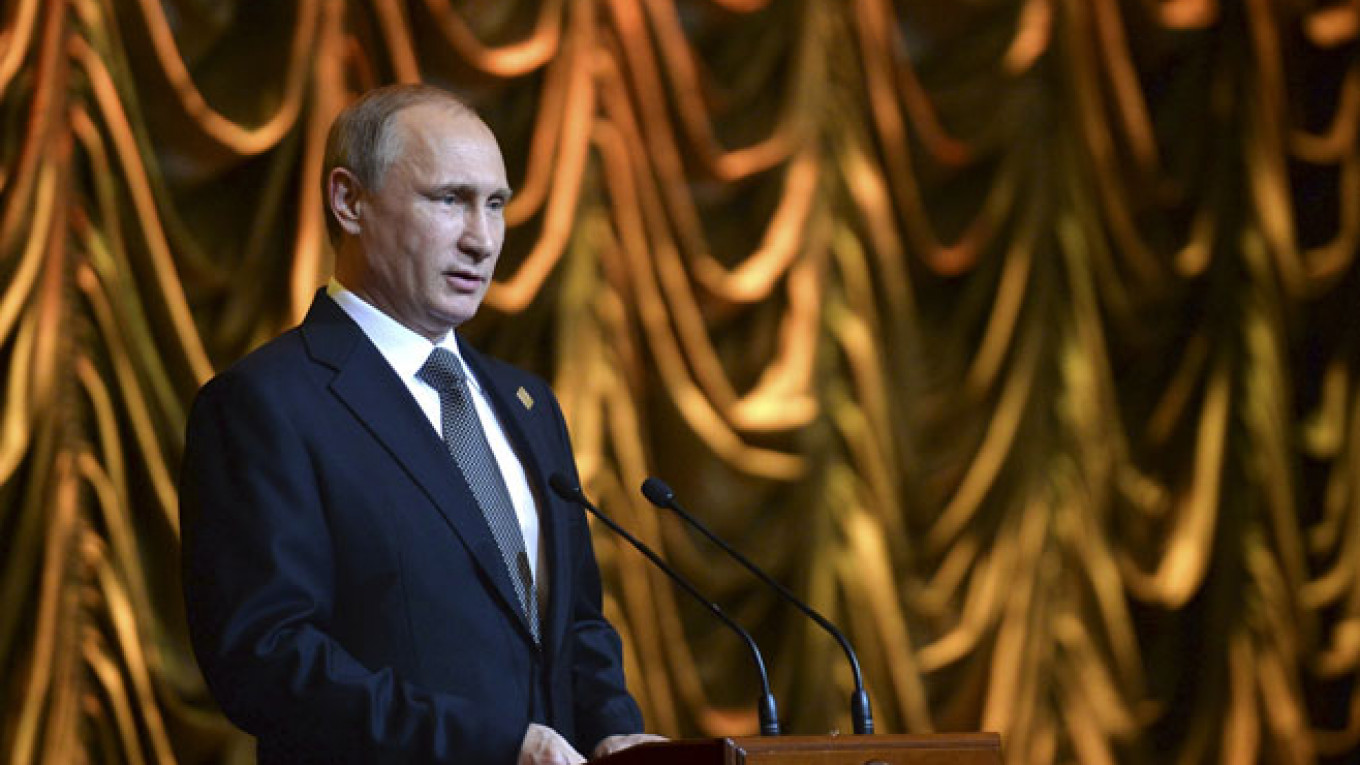By all appearances, U.S. President Barack Obama and Russian President Vladimir Putin don't care much for each other. Putin reportedly has concluded he cannot work with Obama and will wait for a new U.S. president in 2017. Looking at the field of candidates, that would seem a major miscalculation — a miscalculation that Putin has made before.
The relationship between the two got off to a bad start in 2009. On the eve of his first presidential visit to Moscow, Obama told the press that Putin "has one foot in the old ways of doing business." At their meeting, then-Prime Minister Putin gave his guest a harangue about how the United States had mistreated Russia.
Following the 2012 presidential elections in both countries, Washington did not envisage a new reset but still sought to do business with Putin. U.S. officials identified nuclear arms reductions, missile defense and expanding economic relations as key issues. However, in August 2013, the lack of progress on these questions prompted the White House to pull the plug on a planned September summit with Putin in Moscow.
Relations slid downward more quickly after Russia annexed Crimea last year. The Obama-Putin relationship seems irretrievably broken. Has the Kremlin taken a hard look at the large and growing field running to succeed Obama? When it comes to foreign policy — and particularly when it comes to Russia — all serious candidates are running well to the right of the incumbent.
Hillary Clinton, the Democratic front-runner, has played down her role in the reset and made clear her distaste for the Russian president. Her June 13 speech that kicked off her candidacy devoted little attention to foreign policy but nevertheless lumped Russia together with North Korea and Iran as "traditional threats."
There's little love for the Russian president on the Republican side. Jeb Bush used the first stop of his June Europe tour to blast the Kremlin, calling Putin "a bully" and the Russian leadership "corrupt."
Writing in Politico in May, Marco Rubio cited the need to "roll back Russian aggression," suggested more robust sanctions, and said NATO should leave the membership door open for Ukraine. Scott Walker has also called for more sanctions and for "standing firm against the Russian threat." Almost all others vying for the Republican nomination are on the same wavelength.
So, unless the Kremlin's America-watchers believe Bernie Sanders or Rand Paul will win the 2016 election, waiting for the next president looks like a bad bet. And it's a bad bet that Putin has made before — and lost.
In 2000, as the echoes of the NATO military campaign against Serbia died down, missile defense became the most contentious issue on the agenda between Washington and Moscow. U.S. officials developed a limited missile defense plan that nevertheless went beyond the strict constraints in the 1972 Anti-Ballistic Missile (ABM) Treaty. They therefore sought to amend the treaty to somewhat ease those constraints. They noted that defenses would remain limited such that they would pose no serious threat to the Russian strategic ballistic missile force. Russian negotiators, however, insisted on no changes to the treaty.
In June 2000, Bill Clinton traveled to Moscow to meet Putin. Clinton tried to persuade Putin to agree to some amendment of the ABM Treaty. Putin refused. Shortly thereafter, Russian officials put out the word that Putin would wait and deal with the next American president.
George W. Bush took office in January 2001. Eleven months later, he dealt with the missile defense question by giving formal notice that the United States would withdraw from the ABM Treaty.
Steven Pifer is a senior fellow at the Brookings Institution and a retired U.S. Foreign Service officer.
A Message from The Moscow Times:
Dear readers,
We are facing unprecedented challenges. Russia's Prosecutor General's Office has designated The Moscow Times as an "undesirable" organization, criminalizing our work and putting our staff at risk of prosecution. This follows our earlier unjust labeling as a "foreign agent."
These actions are direct attempts to silence independent journalism in Russia. The authorities claim our work "discredits the decisions of the Russian leadership." We see things differently: we strive to provide accurate, unbiased reporting on Russia.
We, the journalists of The Moscow Times, refuse to be silenced. But to continue our work, we need your help.
Your support, no matter how small, makes a world of difference. If you can, please support us monthly starting from just $2. It's quick to set up, and every contribution makes a significant impact.
By supporting The Moscow Times, you're defending open, independent journalism in the face of repression. Thank you for standing with us.
Remind me later.








